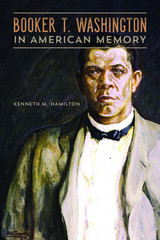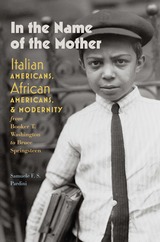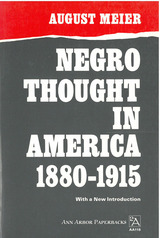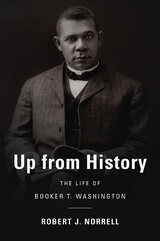



Since the 1960s, Martin Luther King, Jr., has personified black leadership with his use of direct action protests against white authority. A century ago, in the era of Jim Crow, Booker T. Washington pursued a different strategy to lift his people. In this compelling biography, Norrell reveals how conditions in the segregated South led Washington to call for a less contentious path to freedom and equality. He urged black people to acquire economic independence and to develop the moral character that would ultimately gain them full citizenship. Although widely accepted as the most realistic way to integrate blacks into American life during his time, Washington’s strategy has been disparaged since the 1960s.
The first full-length biography of Booker T. in a generation, Up from History recreates the broad contexts in which Washington worked: He struggled against white bigots who hated his economic ambitions for blacks, African-American intellectuals like W. E. B. Du Bois who resented his huge influence, and such inconstant allies as Theodore Roosevelt. Norrell details the positive power of Washington’s vision, one that invoked hope and optimism to overcome past exploitation and present discrimination. Indeed, his ideas have since inspired peoples across the Third World that there are many ways to struggle for equality and justice. Up from History reinstates this extraordinary historical figure to the pantheon of black leaders, illuminating not only his mission and achievement but also, poignantly, the man himself.

Washington, though widely admired, had weathered severe crises both public and private in his fifty-six years. He had dined with President Theodore Roosevelt and drunk tea with Queen Victoria, but he had also been assaulted on a street in New York City. He had suffered personal heartbreak, years of overwork, and the discouraging knowledge that, despite his optimism and considerable success, conditions for African Americans were not improving as he had assumed they would. From within his own community, Washington faced the bitter charge of accommodationism that haunts his legacy to this day. Despite their differences, the two men would work together well and their collaboration would lead to the building of five thousand schoolhouses. By the time segregation ended, the “Rosenwald Schools” that sprang from this unlikely partnership were educating one third of the South’s African American children. These schoolhouses represent a significant step in the ongoing endeavor to bring high quality education to every child in the United States—an ideal that remains to be realized even today.
READERS
Browse our collection.
PUBLISHERS
See BiblioVault's publisher services.
STUDENT SERVICES
Files for college accessibility offices.
UChicago Accessibility Resources
home | accessibility | search | about | contact us
BiblioVault ® 2001 - 2025
The University of Chicago Press









